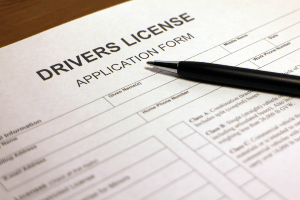 There are laws both at the state and federal level meant to prevent or reduce the risk of accidents. This includes requiring drivers to possess a valid driver’s license before getting behind the wheel.
There are laws both at the state and federal level meant to prevent or reduce the risk of accidents. This includes requiring drivers to possess a valid driver’s license before getting behind the wheel.
Unfortunately, many people break the law and drive without a license. A study conducted by the AAA Foundation for Traffic Safety found that 20 percent of all motor vehicle accidents are caused by unlicensed drivers.
Not only does this put others at risk, driving without a license raises questions about how those injured in crashes with unlicensed drivers may be able to seek compensation.
The car accident attorneys in Fort Worth may be able to help you file a claim if you were injured in a crash caused by an unlicensed driver. These claims can quickly become complicated, which is why it is important to seek experienced legal help.
Penalties for Driving without a License in Texas
Driving without a valid driver’s license in Texas is against the law. According to Chapter 521 of the Texas Transportation Code, anyone found to be in violation of the provision could be charged with a misdemeanor, and face the following penalties:
- $200 fine for the first violation
- Fine between $25 and $200 for a second violation within the first year after the first
- Fine of up to $500 and between 72 hours and six months in jail for a third violation within the same year of the first violation
Offenders may also face restrictions on their driving privileges and could be subject to additional fees not related to the fines. Texas has instituted a Driver Responsibility Program that is mandatory for certain traffic violations, such as driving without a license.
For drivers who choose to get behind the wheel of a vehicle while their license is suspended, the penalties could be even greater, including up to one year in jail if they cause an accident and had no insurance.
Who Pays for Damages?
If you are injured in an accident caused by an unlicensed driver, there is a good chance the unlicensed driver does not have motor vehicle insurance. Without a liability policy to file a car accident claim against, your situation may become more complicated. However, you may still have options.
At-Fault Driver’s Insurance
Not every unlicensed driver lacks insurance. If the at-fault driver has insurance, you may be able to file a claim against his or her liability policy if your injuries are a result of the driver’s negligence.
In cases like this, you would have to follow the usual steps for filing an injury claim. However, the insurance company may try to deny liability because the policyholder did not have a valid license. This is where having a licensed attorney on your side may be beneficial to you. We are prepared to carefully review the insurance policy in question to determine how the driver’s license issue may impact your claim.
Your Own Insurance
This option may only be available to you if you have extra coverage beyond what is required by law, such as uninsured/underinsured motorist coverage or personal injury protection coverage. Since Texas is an at-fault state, drivers are not required to carry these policies.
Can I File a Lawsuit?
In Texas, you have the right to pursue compensation for any injuries you suffer due to the negligence of another. This means you may be able to file a lawsuit against a negligent driver who caused an accident that resulted in your injuries.
However, every case is different and for a case involving an unlicensed driver, filing a lawsuit may prove more complicated than others. Therefore, it is important to speak to a knowledgeable attorney who can help you determine if you may have a case.
We May Be Able to Help. Call Today
Our firm has over 50 years of combined experience helping injury victims recover millions in compensation. We negotiate with insurance companies all the time and regularly take cases to court to secure compensation.
There are no upfront fees for our services, and you do not owe us anything unless we recover compensation on your behalf. There is no risk to you.
Call today to schedule a free consultation: (817) 920-9000.